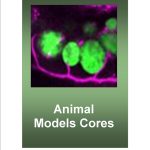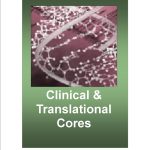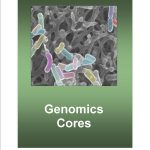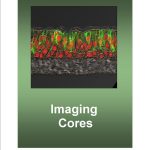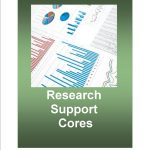UNC Genomics Core Facilities and Resources
These pages list our core facilities by areas of focus. These are brief profiles of the cores; to find more detailed information on each core, including location, contact information, and equipment lists, please check out their facility overview in their listing in our searchable database.
UNC provides a full spectrum of genomics based services. From multiple microarray platforms, multiple high throughput sequencing systems, real time PCR and in situ hybridization support, UNC has a highly skilled core facility that can meet most needs.
Genotyping
Functional Genomics Core
Functional Genomics Core performs expression profiling and SNP genotyping (Affymetrix) services. We currently have Beckman Coulter’s Biomek® FXP Target Prep Express robot and the GeneTitan Instrument from Affymetrix which allow the processing of hundreds of microarray samples in a week, and processing of high throughput expression peg arrays and Axiom genotyping high throughput peg arrays. Also, we have the Affymetrix GeneChip® Scanner 3000 7G Plus Targeted Genotyping System in the Core. It has the ability to scan all research arrays manufactured by Affymetrix including the high density expression arrays which place an entire genome on one GeneChip®. This equipment includes 2 Fluidics Station 450s and the GeneChip® Hybidization Oven 645.
Mammalian Genotyping Core
Mammalian Genotyping Core provides services using any of the Illumina microarrays (BeadChips) for genotyping, CNV analysis, or DNA methylation.
Expression Analysis
Center for Gastrointestinal Biology and Disease (CGIBD): Advanced Analytics Core
The CGIBD Advanced Analytics (AA) Core provides bulk and single-cell genomic and proteomic analysis, high-throughput qPCR, and cost-effective immunoassays. The AA Core offers turn-key research solutions – bring us samples, we send you processed data. Each project begins with an initial consultation to discuss experimental design and feasibility. Users receive their results electronically after work has been completed and can track the progress of their projects via cloud-based reports. The AA Core also offers assistance with end-user data analysis.
Functional Genomics Core
Functional Genomics Core performs expression profiling and SNP genotyping (Affymetrix) services. We currently have Beckman Coulter’s Biomek® FXP Target Prep Express robot and the GeneTitan Instrument from Affymetrix which allow the processing of hundreds of microarray samples in a week, and processing of high throughput expression peg arrays and Axiom genotyping high throughput peg arrays. Also, we have the Affymetrix GeneChip® Scanner 3000 7G Plus Targeted Genotyping System in the Core. It has the ability to scan all research arrays manufactured by Affymetrix including the high density expression arrays which place an entire genome on one GeneChip®. This equipment includes 2 Fluidics Station 450s and the GeneChip® Hybidization Oven 645.
Vironomics Core
The Vironomics Core facilitates research at UNC by performing large-scale real time quantitative PCR reactions, amplicon generation, and ~200-600bp next generation sequencing. This is accomplished using Ion Torrent S5, companion Ion Torrent Chef, and robot-assisted PCR in 96 and 384 well format.
The Vironomics Core currently provides several real-time qPCR arrays for viruses and miRNAs profiling including: KSHV, EBV, HSV1 and HSV2, RRV, HCMV, NFkappaB, Pre-miRNA, and P53response12. The unique automated robotics also enables the Vironomics Core to offer custom and commercial real-time PCR assays to clients.
The Vironomics Core uses several automated robotics for the large-scale real-time PCR. A Tecan Freedom Evo© is used to set up reactions in a 384-well plate, which is then run by the Roche Lightcycler 480 II©. This is a fast and effective way to amplify samples with RT-qPCR.
Immune Monitoring and Genomics Facility
The Immune Monitoring and Genomics Facility (IMGF) provides investigators with cellular immunology, molecular immunology, and immunogenomics services that can delineate interactions between the immune system and tumor tissues. The IMGF focuses on clinical trial correlative research studies but supports basic research studies as well. These studies include both FDA-approved government and industry-sponsored research.
Sequencing
High-Throughput Sequencing Facility
The High-Throughput Sequencing Facility applies the tools of high throughput sequencing technology to enrich cancer research of UNC scientists. High throughput sequencing is an extremely fast developing technology, used in many applications such as genome sequencing, genome re-sequencing, chip-seq, cDNA sequencing, digital expression, and microRNA abundance.
The HTSF is a full-service sequencing facility that offers multiple platforms and several different state-of-the-art techniques to assist with genetic and genomic research. These platforms available include: Illumina’s MiSeq, HiSeq2500 and HiSeq 4000, Ion Proton and PacBio RSII.
Genomic sequenced-based applications include: complete genome re-sequencing including for comprehensive polymorphism and mutation discovery in individual genomes; targeted genomic re-sequencing including for targeted polymorphism and mutation discovery; ChIP-seq (Chromatin immunoprecipitation-sequencing) for genome-wide mapping of protein-DNA interactions; small RNA sequencing; transcriptome sequencing for quantification of gene expression and alternative splicing, transcript annotation, and discovery of transcribed SNPs or somatic mutations; sequencing of bisulfite-treated DNA for the determination of the presence of methylated DNA; and metagenomic sequencing. The HTSF uses several automated robotic platforms for large-scale library preparation to ensure the reproducibility and quality of library preps. The new HTSF Research & Development group will work with investigators to develop new applications for high-throughput sequencing and providing opportunities for testing library prep kits in a beta stage of development and evaluating new sequencing or genome mapping technologies.
Translational Genomics Lab
The UNC Lineberger Comprehensive Cancer Center Translational Genomics Lab (TGL) is a medium throughput facility providing comprehensive genomic services for investigators by employing Next Generation Sequencing (NGS) and NanoStringTM technologies. In addition, TGL can produce single-cell gene expression libraries using the 10X platform. The mission of TGL is to support translational human cancer genomics research at the University of North Carolina – Chapel Hill. The TGL facility performs sample processing and analyses for the molecular, pathologic, and genomic characterization of patient-derived specimens in preclinical research projects and clinical protocols. Our laboratory employs highly-automated, as well as manual, platforms for reproducible medium-throughput nucleic acid extraction, library preparation, and next-generation sequencing of tissue, cells, and blood samples. Our goal is to provide a resource that balances rigor and flexibility to meet the needs of academic and clinical research, and that can ultimately produce optimized and validated processes for adoption in clinical labs.
UNC Microbiome Core Facility
UNC Microbiome Core Facility provides the research community within the UNC School of Medicine and the state of North Carolina with the facilities and expertise to characterize complex microbial communities in a variety of environments. The Microbiome Core offers comprehensive services for microbiome analysis that include experimental design, isolation of nucleic acids (DNA/RNA), barcoding, library preparation and sequencing using the appropriate Illumina or Life Sciences platform, and bioinformatics analysis. Other services offered by the Core include: quantitative and digital PCR, creation of clone libraries, strain typing, optimization of bacterial culture conditions, and high-throughput liquid handling (PCR reaction set up, sample pooling, picogreen quantification of nucleic acids).
Vironomics Core
The Vironomics Core performs next generation sequencing using Ion Torrent S5 and companion Ion Torrent Chef and by performing large-scale real time quantitative PCR reactions (please see expression analysis section).
Genetics
Human Pluripotent Cell Core Facility
The Human Pluripotent Cell Core Facility provides UNC scientists and outside collaborators with services to successfully conduct basic as well as translational research using human embryonic stem (hES) cells and human induced pluripotent stem (hiPS) cells.
Types of Services & Support Available:
Cell derivation and characterization services: Generation and characterization of hiPS cells from fibroblast, blood cells and other custom cell types using integration-free methods. Differentiation of hES and hiPS cells to neural progenitor cells, mature neurons, cardiomyocytes, hepatocytes, mesenchymal stem cells, osteoblasts, adipocytes and endothelial cells.
Genome editing of mammalian cells: consultation and full service in the design, construction and testing of TALEN/CRISPR vectors for gene knock-out and knock-in. TALEN/CRISPR-mediated point mutation introduction and/or repair to create isogenic cell lines and custom targeting vectors to be used in combination with TALEN or CRISPRs for tagging endogenous genes with fluorescent proteins.
Gene regulation services; the core offers full service including design, construction and testing gene of regulation in any mammalian cell type of artificial gene regulator composed of ZFP, TALENs CRISPR/Cas9 coupled with activators, repressors or chromatin remodeling enzymes.
UNC CRISPR Core
The CRISPR Screening Facility provides:
Arrayed Screens which includes: Consultation on screen design, benchmarks, and objectives, high quality CRISPR sgRNA arrayed into 96-well or 384-well format, automated assay with in-house robotics, individual acquisition and analysis for each target gene, and deliverable: high quality data sets for individual genes.
Pooled Screens which includes: Consultation on screen design, benchmarks, and objectives, high quality whole mammalian genome CRISPR sgRNA validated pools, assay run by our experienced team, or PI can choose to run assay in their lab, isolation of ‘hit’ genes, next generation sequencing and bioinformatics, and provides as a deliverable: rank list of genes identified in screen
UNC Vector Core
UNC Vector Core delivers the highest quality AAV vectors (research grade only) to academic, government, foundation, and biotech industry clients.
Other Genomics
Bioinformatics and Analytics Research Collaborative (BARC)
The Bioinformatics and Analytics Research Collaborative (BARC) at the University of North Carolina at Chapel Hill is a multi disciplinary center that aims to provide bioinformatics expertise and analysis to researchers across the university and beyond for high throughput data. We analyze, visualize, interpret, and manage genomic data while also offering custom solutions to fit our researchers’ needs. Additionally, the center strives to educate researchers on current tools and techniques, foster a collaborative environment by hosting workshops, working groups, and seminars, and improve existing tools and/or invent new tools and algorithms.
We offer a free initial consultation during which we discuss the client’s project and how to ensure they are able to maximize the information that they learn. Afterwards, depending on the scale of the project we provide services by the hours or staff for grant for projects longer than six months. Each project is assigned to a project coordinator and bioinformaticist. The project coordinator is the point of contact for the client and is responsible for updating them on the status of their project.
Clinical Genomic Analysis (GENYSIS) Core
The Clinical Genomic Analysis (GENYSIS) Core collaborates with other core facilities on campus to provide clinical researchers support with analyzing genomic data. Specifically, the GENYSIS Core can provide bioinformatics support by performing human genome alignment of sequence data generated from the HTSF (or other sequencing center) and variant calling via a custom in-house pipeline and variant analysis by correlation with participant phenotypic data, and analysis of called variants by highly trained staff. Reportable variants are discussed at a weekly meeting attended by MDs, PhDs, and genetic counselors. Additionally, the core can generate clinical-grade test report for the variants clinically confirmed in the MGL that can also be uploaded to Epic if the participant is a UNC patient and provide post-test services such as assisting the study, clinician, participants, and their family, including reviewing results, providing educational resources, and identifying appropriate clinical follow-up.
Lenti-shRNA and Lenti-cDNA Core Facility
The Lenti-shRNA and Lenti-cDNA Core Facility is premised on three libraries: a human cDNA library in lentiviral vector to over express human genes (under the control of a CMV promoter) and two Open Biosystems’ TRC1 shRNA libraries (to knockdown either mouse or human genes). The shRNA libraries are cataloged as single lentiviral-vector shRNA expression clones directed to ~16,000 human and mouse genes. Each gene is targeted by 4-5 different shRNAs driven by the U6 promoter. Furthermore, control vectors bearing scrambled shRNAs or shRNAs directed against GFP are available. Please note that the shRNAs’ knockdown efficiency has not been validated. The shRNA core provides lentiviral shRNA vectors in the form of glycerol bacterial stocks or vector particle preparations (~10mL). The shRNA core also provides consulting in designing and optimizing shRNA-encoding lentiviral vectors. Upon request, the core can also provide alternate platforms for shRNA delivery, employing a variety of promoters and other cis elements to improve shRNA expression.
UNC Center for Bioinformatics
UNC Center for Bioinformatics provides bioinformatics research support for researchers at UNC-CH. As a part of that mission we manage and maintain licenses for several commercial software packages that UNC-CH licenses. These packages include software for experimental molecular biology (Sequencher, DNASTAR and Vector NTI), next generation sequencing data analysis (CLC Genomics Workbench) and microarray data (Partek Genomics Suite). We also provide access to (and manage) UNC-CH’s licenses for Ingenuity Pathway Analysis (IPA). These tools are supported on multiple operating systems. We closely work with ITS-Research Computing to facilitate access to large compute resources for biomedical researchers. We pre-install, maintain, update many open source software packages for analysis of next generation data on ITS-RC compute clusters. Local copies of BLAST databases are made available on the cluster and are updated on a weekly basis.
We offer “hands-on” training for different bioinformatics tools/topics year round. Basic Bioinformatics Tools workshops (https://guides.lib.unc.edu/bioinformatics) are offered each Spring and Fall semester in collaboration with Health Sciences Library. They consist of multiple two hour sessions spread over several weeks. Video recordings of these workshops sessions are created and remain available (on request) to learn at your own pace. Three full-day intensive workshops on next generation sequence data analysis are offered twice a year. We also manage the information technology infrastructure for UNC-HTSF. This includes processing, quality control, distribution and backup of all sequence data generated by UNC-HTSF for majority of the projects.
